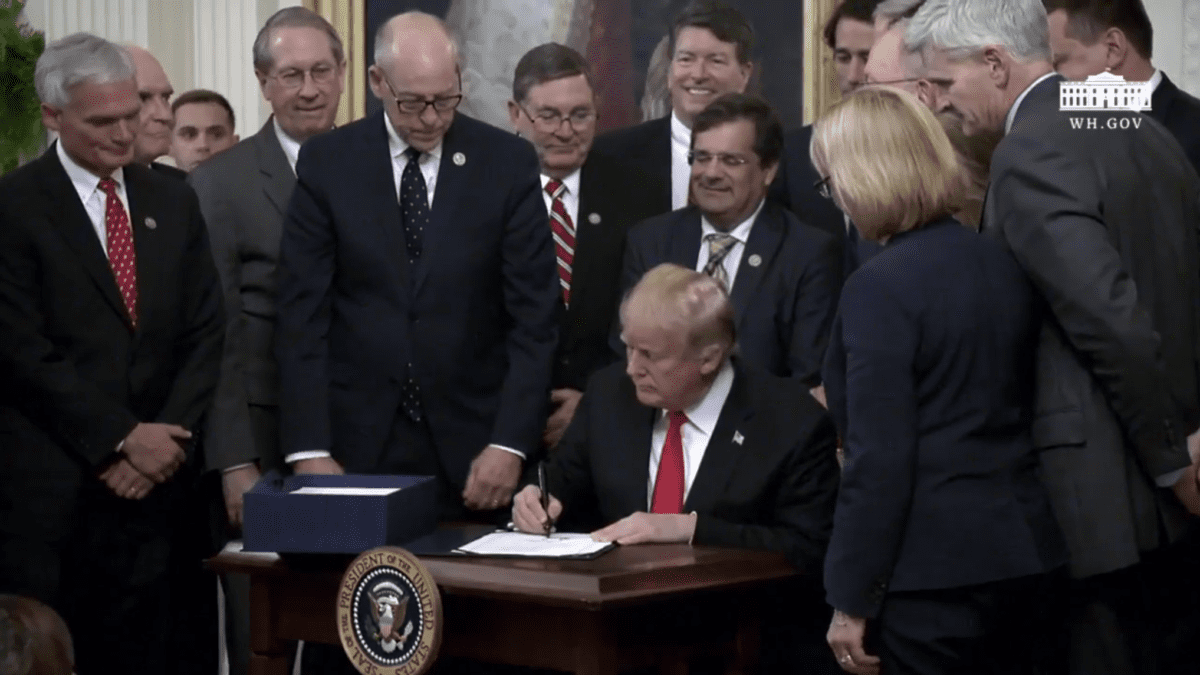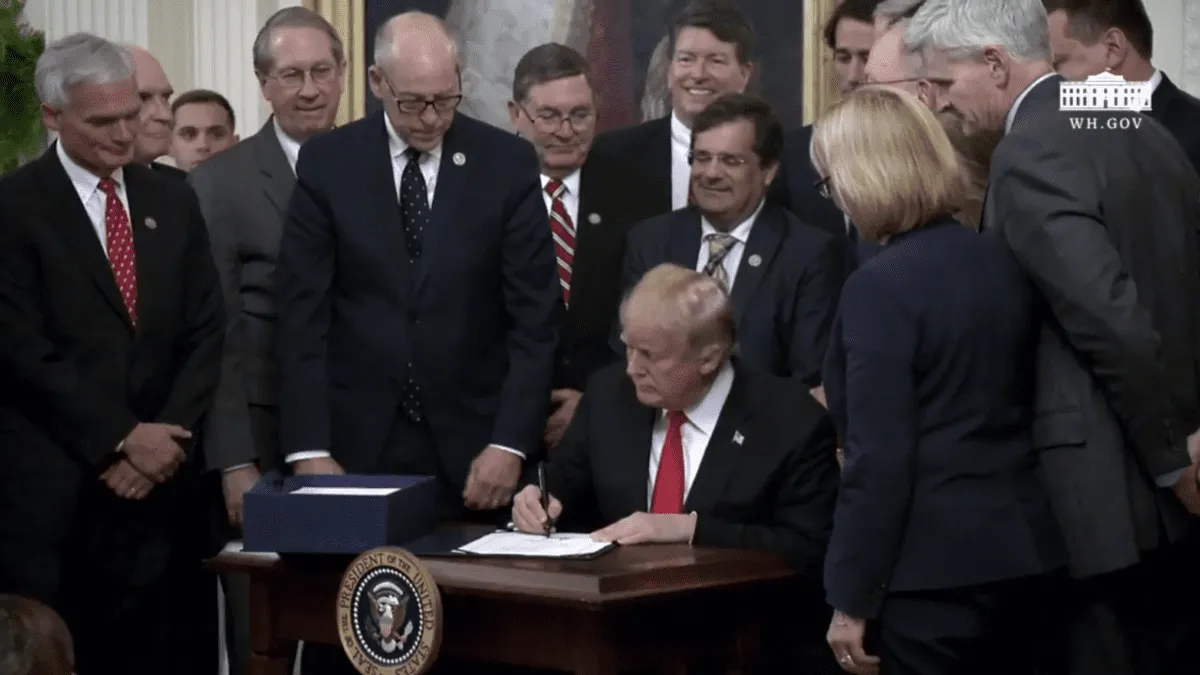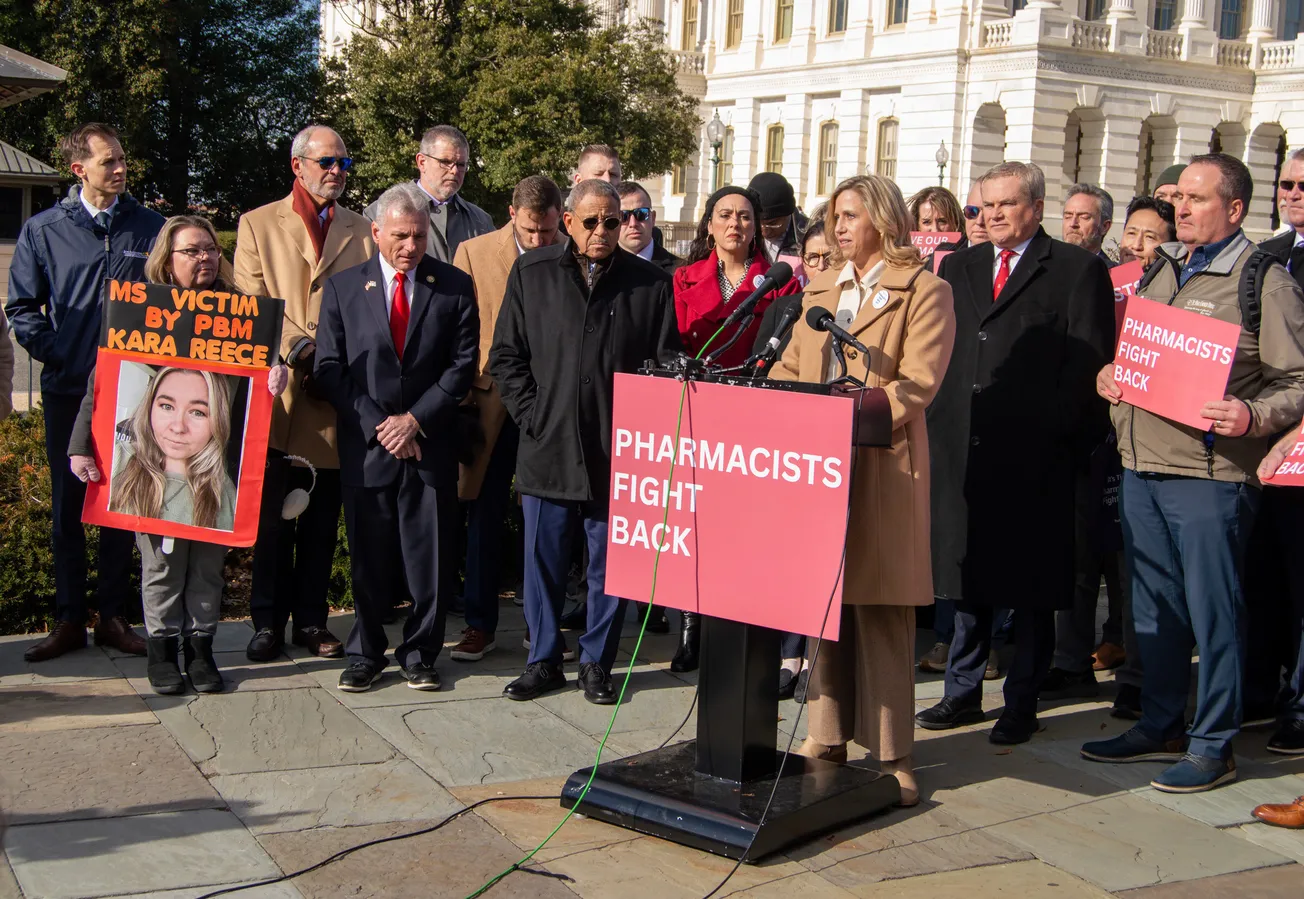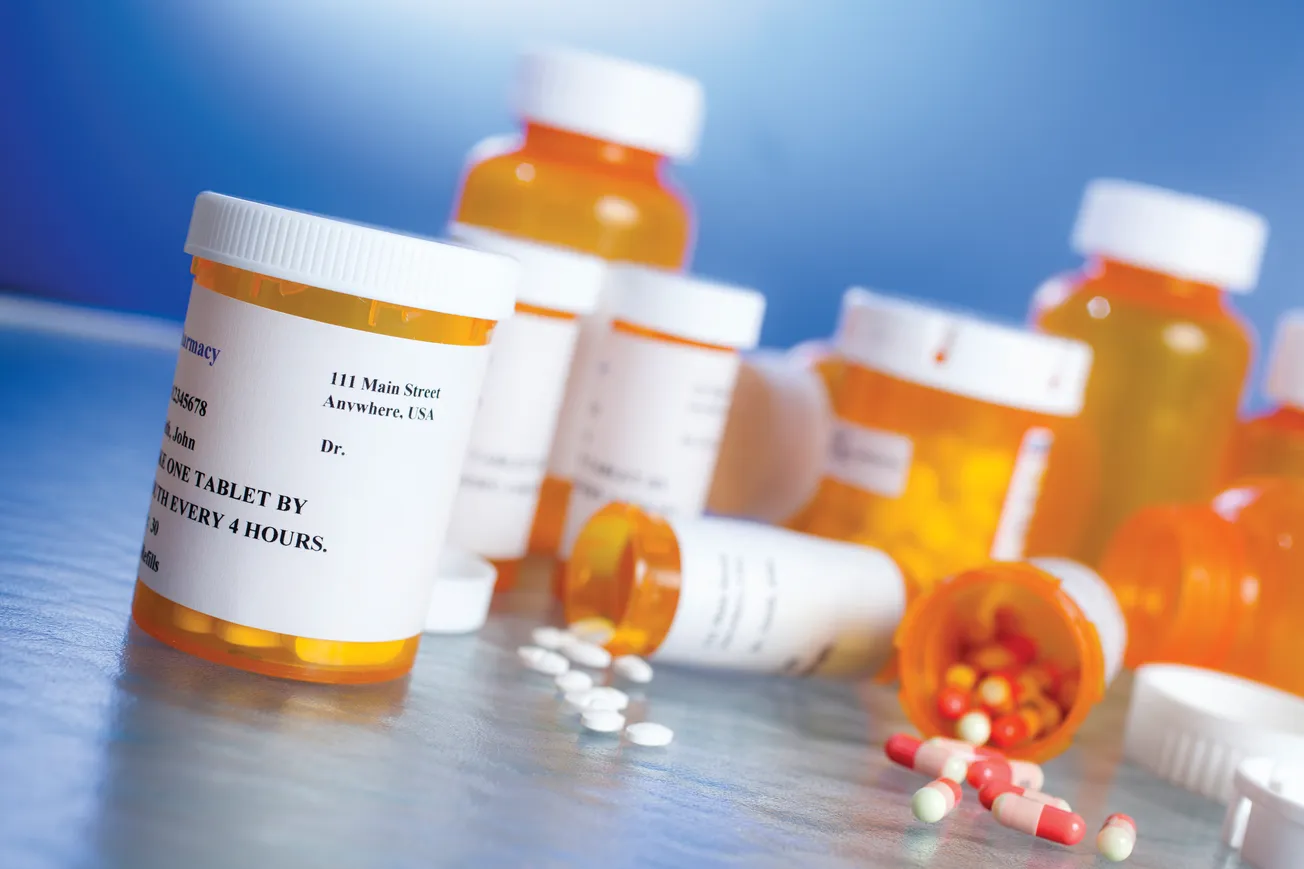
NACDS was invited to the White House bill signing ceremony for the SUPPORT for Patients and Communities Act – which reflects the Association’s policy recommendations. (Photo credit: WhiteHouse.gov)
ARLINGTON, Va. – The National Association of Chain Drug Stores (NACDS) was invited to a White House event today titled “A Year of Historic Action to Combat the Opioid Crisis,” at which the President signed the SUPPORT for Patients and Communities Act (H.R. 6) – legislation that reflects aspects of all four of NACDS’ policy recommendations regarding opioid-abuse prevention.
“NACDS offered legislative recommendations based on pharmacists’ first-hand experiences on the front lines of healthcare delivery, and we appreciate the work of the Trump Administration and of members of Congress to reflect these important perspectives in this new law,” said NACDS president and chief executive officer Steven Anderson, who attended the White House event. “NACDS’ recommendations were crafted to build on pharmacy’s long-standing 100-percent commitment to patient care and zero-tolerance for drug abuse. We pledge our continued commitment to serving as part of the drug-abuse solution, including in the implementation phase of this new law and in other facets of this highly complex national challenge.”
NACDS member companies represented and recognized at the event include CVS Health, Rite Aid Corporation, Walgreen Co. and Walmart.
The legislation includes the provisions of the NACDS-backed electronic prescribing bill, as well as the provisions of an NACDS-backed drug disposal bill that is consistent with the flexibility urged by NACDS and with pharmacies’ current initiatives. The bill also reflects the spirit of NACDS’ recommendations on prescription drug monitoring programs (PDMP) and on initial-fill limits for acute pain. In addition to reflecting NACDS’ opioid-specific policy recommendations, which NACDS announced on October 24, 2017, H.R. 6 also enhances eligibility for the Medicare Part D Medication Therapy Management (MTM) program to include at-risk beneficiaries.
The legislation includes the Every Prescription Conveyed Securely Act, requiring electronic prescribing for Schedule II through V controlled substances prescriptions covered under Medicare Part D to help prevent fraud, abuse and waste – with limited exceptions to ensure patient access. Sens. Michael Bennet (D, Colo.) and Dean Heller (R, Nev.) introduced the Senate version, with the original co-sponsorship of Sens. Elizabeth Warren (D, Mass.) and Pat Toomey (R, Pa.). The House of Representatives version was introduced by Rep. Katherine Clark (D, Mass.) and Rep. Markwayne Mullin (R, Okla.).
Of importance, state legislatures and executive branches are taking action to advance electronic prescribing as well. Seven states have enacted some sort of mandatory electronic prescribing legislation this year, bringing the total number of states with some sort of NACDS-backed provision to 13. Legislation is pending in other states. Reflective of the journey toward greater use of electronic prescribing as a safeguard, NACDS was on the leading edge of working with the Drug Enforcement Administration to allow electronic prescribing of controlled substances. Until 2010, it was not even allowed.
In a January 2018 national survey conducted by Morning Consult and commissioned by NACDS, three-in-four voters – on a non-partisan basis – supported rules that all prescriptions must be handled electronically, rather than by paper or fax, as a way to help address the opioid abuse epidemic. Three-in-four also supported limiting the initial fill of certain opioid prescriptions to seven days.
Regarding drug disposal, H.R. 6 reflects the Access to Increased Drug Disposal Act (S. 2645 and H.R. 5628) – which was introduced in the Senate by Sen. Joni Ernst (R, Iowa) with the original co-sponsorship of Sen. Chuck Grassley (R, Iowa) and Sen. Richard Blumenthal (D, Conn.), and in the House by Rep. David B. McKinley (R, W Va., Rep. Paul Tonko (D, N.Y.), Tom Marino (R, Pa.), and David Cicilline (D, R.I.). The related provisions will create a demonstration program to provide federal grant funding to states to assist drug disposal authorized collectors with the cost to purchase, install, and maintain drug take-back kiosks; the cost to dispose of collected unwanted prescription drugs; and the cost to train staff in operating the kiosks with the goal of improving take-back programs and participation in the states.
Regarding limits on some initial fills of opioids for acute pain, members of Congress opted against language that could have jeopardized current initiatives in this area.
Regarding PDMPs, the legislation takes important technical steps to facilitate a collaborative and inter-connected system that provides meaningful prescribing information to healthcare providers that can help prevent fraud, waste and abuse.
The policy recommendations issued by NACDS complement longstanding and ongoing pharmacy initiatives to prevent opioid abuse, including compliance programs; pioneering e-prescribing; drug disposal; patient education; security initiatives; fostering naloxone access; stopping illegal online drug-sellers and rogue clinics; and more.
NACDS’ Chain Pharmacy Community Engagement Report indicates that opioid abuse prevention stands as one of the top priorities for NACDS members among their community engagement initiatives.
Last week, Anderson provided additional context on the enactment of the legislation in an opinion piece published on NACDS.org.







